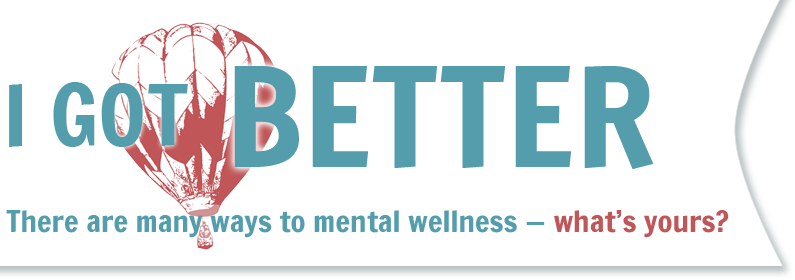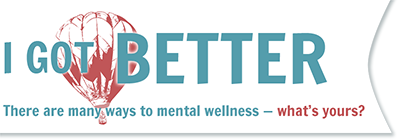Master of My Own Life

The meds that I’ve continued to take are helpful in that even though they don’t “cure” things, they do make things easier to manage by keeping the extremity of things to a lesser degree. When not on the ones I’ve stuck with, my moods have plunged hard and fast to dangerous depths…whereas when on them I am able to do the things I need to do to prevent this from happening when I feel any sorts of shifts going on within myself.
In what ways have you found psychiatric medication(s) harmful, if any?
Side effects suck and I’ve had some horrid ones. At the time when I was a prisoner of the system I choked down pretty much every psych med that exists because they figured one eventually would do what they wanted…I learned first hand how the vast array of side effects out there can feel. My brain is still slower than it should be, also, because of some meds.
During your mental health care, have you often felt hopeless about your chance of getting better?
It is only until the past couple of years that I even realized that there is hope to get better. It was never presented as an option, and I never dared entertain the idea.
Has a mental health provider ever told you that you could reach a personal goal despite your psychiatric diagnosis (for example, education, career, independent housing, relationship, children, etc.)?
Yes. Any goal I set, ranging from pursuing a Doctorate degree to taking a yoga class or cooking a decent meal when my kids visit is consistently met with encouragement from my current therapist. She never limits me on the basis of my diagnosis nor does she ever enter it into the picture…if I enter it into the picture she reminds me that if anything is to get in the way of that particular goal, it is me not my diagnosis/illness/etc. This is very different from my experiences prior to meeting her several years ago.
Has a mental health provider ever told you that you could not reach a personal goal because of your psychiatric diagnosis (for example, education, career, independent housing, relationship, children, etc.)?
I was told that I was sick. I was told that maybe even though I was sick I could pick up some pieces and live some semblance of a normal life, but only if I could stop feeling sorry for myself long enough to pull myself up by my bootstraps and try harder…but not too hard or I’d be disappointed. I was told not to date because I would never be healthy enough or stable enough for a good relationship. Though I’m in the process of a divorce, I wouldn’t change my choice in partners one bit. The reality is I have two beautiful children now and I can’t imagine life without them. What if I had listened back then? Any pain I’ve suffered is far outweighed by the joys of having my kids…period. That’s one example, I was steered away from other life goals as well, but I think that’s enough for now.
If you overcame hopelessness that you could get better from a mental health or emotional problem, was there a turning point for you? Please describe:
I think the turning point was when I began working in peer support. Things began to click. The things my now supportive therapist had been saying made more sense, and I began to believe in myself and my abilities more and more. I think being honored for my experiences with both illness and recovery was a big part of it. I was used to having to hide it or be shunned for it, even when working in the mental health field in a non-peer position. It’s hard to feel hopeful when you are consistently filled with shame.
Tell us what recovery means to you. How would you define recovery from mental health or emotional problems in your own words?
There’s a period in my life where all I can remember is pain, misery, and feeling victimized by those who were supposed to be helping me. Though I eventually did find a few medications to be helpful along my journey, recovery for me was when I was able to be the master of my own life. Things didn’t become perfect overnight, and never will be perfect, but I began to learn how to live and survive no matter what curveballs I might have to deal with at any given moment – including knowing when I can’t do it on my own. It takes practice and effort to stay tuned in and to find balance when I can. That’s recovery to me.
If you could send a brief message to someone receiving mental health care today who is feeling hopeless about getting better, what would you say?
Be compassionate and encourage yourself as you would a friend. Trust in that there are many of us out here who never thought it would be possible to be where we are today. Hang in there and keep working on your recovery. I believe in you…
Can you give examples showing you have gotten better from a mental or emotional problem, such as how you are doing well or accomplishing goals you have chosen?
A little over 10 years ago I thought I was headed nowhere but down. I lost my job, was living in a homeless shelter, got sent to a partial hospital program where they told me I was the reason for my own demise; that I have personality disorders. I now have two beautiful children, a cute little house I rent, a part time job as a Peer and I’m working on a Masters degree in Social Work. It took a long time to get here and a lot of work. I still have to make a concerted effort to stay on a positive track a good chunk of the time, but it’s worth the work. I now know recovery is possible. I’m lucky to have found people who believed in me and helped me begin to believe in myself.


